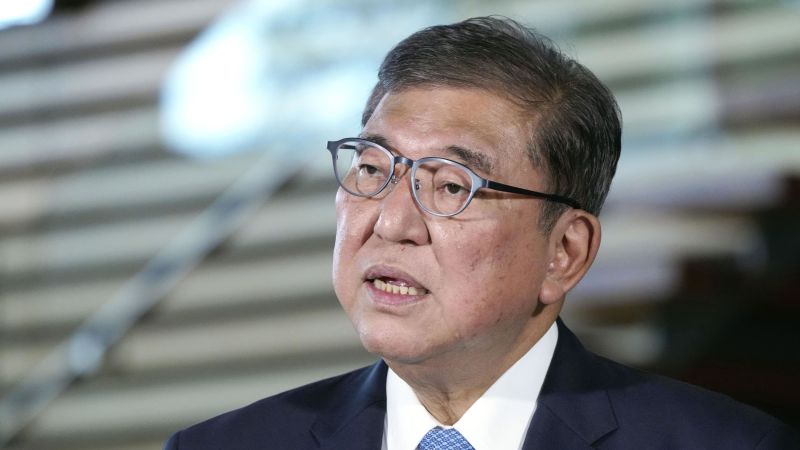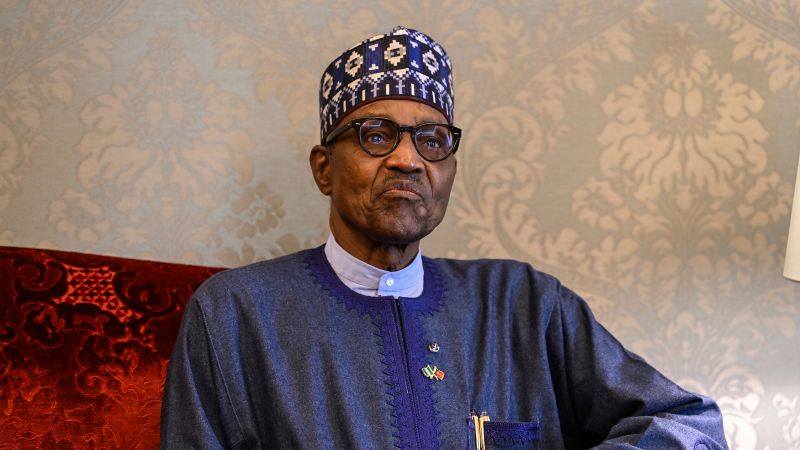Japanese Prime Minister Resigns: Impact on Leadership and Policies

Introduction
The resignation of Japanese Prime Minister Shigeru Ishiba has dominated headlines in the country and around the world. Rumors of his impending resignation have been swirling for weeks, and now, according to public broadcaster NHK, it is official. Ishiba has reportedly made the decision to step down in order to avoid a potential split within the ruling Liberal Democratic Party. The news has sent shockwaves through the political landscape of Japan, leaving many to wonder about the future of the country's leadership and policies.
Key Details
Ishiba's decision to resign comes at a critical time for Japan. The country is facing challenges on multiple fronts, including the ongoing COVID-19 pandemic, economic struggles, and diplomatic tensions. Ishiba, who is known for his conservative views and tough stance on security issues, has been a polarizing figure in Japanese politics. His resignation is seen as a blow to the ruling party and could potentially open the door for a new leader with different ideologies and priorities.
Impact
The resignation of Prime Minister Ishiba is likely to have a significant impact on the future of Japan. With his departure, the country will have to navigate through a new era of leadership and decision-making. This could lead to changes in policies and strategies, potentially affecting not only Japan, but also its relations with other countries around the world. The resignation also
About the People Mentioned
Shigeru Ishiba
Shigeru Ishiba is a Japanese politician born on February 4, 1957, in Tokyo, Japan. He comes from a political family, being the son of the former Governor of Tottori Prefecture. Ishiba entered politics after working at Mitsui Bank, encouraged by former Prime Minister Kakuei Tanaka. He was first elected to the House of Representatives in 1986 at the age of 29, becoming the youngest member at the time[4][5]. Ishiba has held several prominent roles throughout his career. He served as Director-General of the Japan Defense Agency from 2002 to 2004, Minister of Defense from 2007 to 2008, and Minister of Agriculture, Forestry and Fisheries from 2008 to 2009[2][4]. He was also the Secretary-General of the Liberal Democratic Party (LDP) from 2012 to 2014[2]. Ishiba has been known for his moderate stance and has criticized his own party on several occasions, including supporting a motion of no-confidence against Prime Minister Kiichi Miyazawa in 1993[1][2]. In 2024, Ishiba became the President of the LDP and subsequently the Prime Minister of Japan, serving until 2025[1][2]. During his tenure, he focused on issues like rural revitalization and addressing Japan's declining population[3]. Ishiba is also known for his progressive views on social issues, such as supporting women's empowerment and same-sex marriage[3]. In September 2025, he announced his resignation as Prime Minister and LDP leader, following the party's loss of its majority in both houses of Japan's parliament[3].
About the Organizations Mentioned
Liberal Democratic Party
## Overview The Liberal Democratic Party (LDP; Jiyū-Minshutō) is Japan’s largest and most influential political party, having dominated the country’s political landscape for nearly seven decades since its founding in 1955[1][5][7]. As a conservative to moderate force, the LDP has shaped Japan’s post-war recovery, guided its transformation into a global economic powerhouse, and maintained a steadfast alliance with the United States[2][4][7]. The party’s broad appeal—encompassing both nationalist and progressive factions—allows it to adapt to shifting political and economic climates, much like major U.S. parties[4]. ## What the Organization Does The LDP’s core mission is to promote economic growth, national security, and social stability through policies that favor business, low taxes, and government support for industry[4][5]. It prioritizes a close relationship with the U.S., advocates for export-driven growth, and has historically resisted sweeping social reforms such as the legalization of same-sex marriage[1]. The party also supports constitutional revision to expand Japan’s military role internationally, reflecting evolving national security priorities[4]. ## History Formed in 1955 through the merger of the Liberal Party and the Japan Democratic Party, the LDP was created to counter the rising influence of socialist parties[3][6]. It quickly established itself as the dominant political force, overseeing Japan’s remarkable post-war economic recovery and industrialization[7]. The LDP’s uninterrupted rule from 1955 to 1993 was punctuated only by brief opposition-led governments in 1993–94 and 2009–12[2][7]. Its longevity is attributed not only to policy successes but also to a robust political machine built on patronage and close ties with business and agricultural interests[6]. ## Key Achievements Under LDP leadership, Japan became the world’s second-largest economy by the 198
NHK
The Japan Broadcasting Corporation, widely known as **NHK**, is Japan’s public broadcaster, established originally in 1926 through the merger of regional radio stations in Tokyo, Osaka, and Nagoya. It operates as a statutory corporation funded primarily by viewer license fees, which ensures its editorial independence from government and commercial interests[1][2][4]. NHK runs a comprehensive range of media services, including two terrestrial TV channels (NHK General TV and NHK Educational TV), three satellite TV channels—among which are advanced ultra-high-definition 4K and 8K channels—and three radio networks. Its international branch, **NHK World-Japan**, targets overseas audiences with English-language TV, multilingual radio, and Japanese-language entertainment, broadcasting globally via satellite, cable, and online platforms[1][3]. Historically, NHK played a central role in broadcasting innovation. It was the first broadcaster worldwide to transmit in high-definition using the Hi-Vision system and later pioneered 8K Ultra HD broadcasts. NHK also launched television broadcasting in 1953, expanding from its original radio roots dating back to 1925. After World War II, NHK was restructured under a 1950 broadcast law that prohibited government interference in programming and allowed private broadcasters to compete, shaping it into a modern public service media organization[1][2]. NHK is particularly noted for its extensive news coverage, cultural programming, educational content, and sports broadcasts, including sumo wrestling and baseball. It also sponsors Japan’s oldest and largest classical music ensemble, the NHK Symphony Orchestra since 1951[2]. Governance of NHK is overseen by a 12-member board of governors appointed by Japan’s Diet, with day-to-day operations managed by an executive board including a president and managing directors. Its annual budget is subject to parliamentary review, reflecting its public accountability[1]. NHK’s blend of technological innovation, public service mission, and global outreach through NHK World-Japa

















